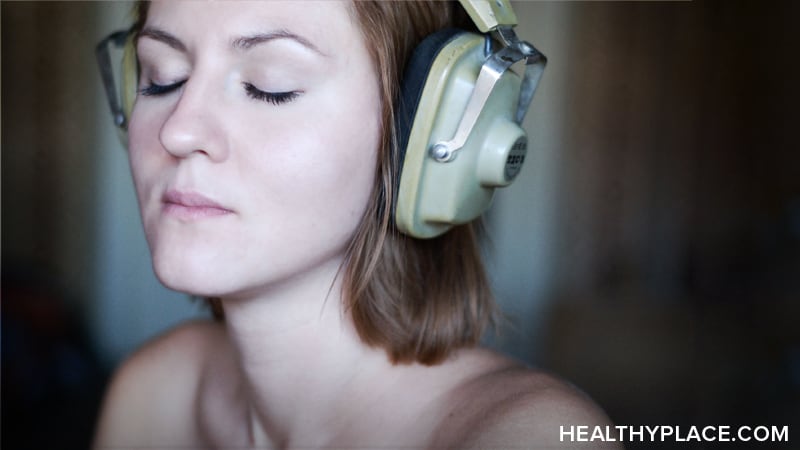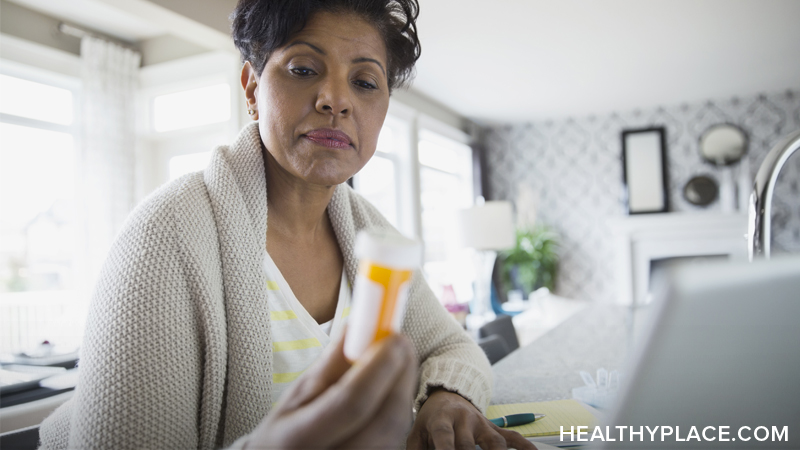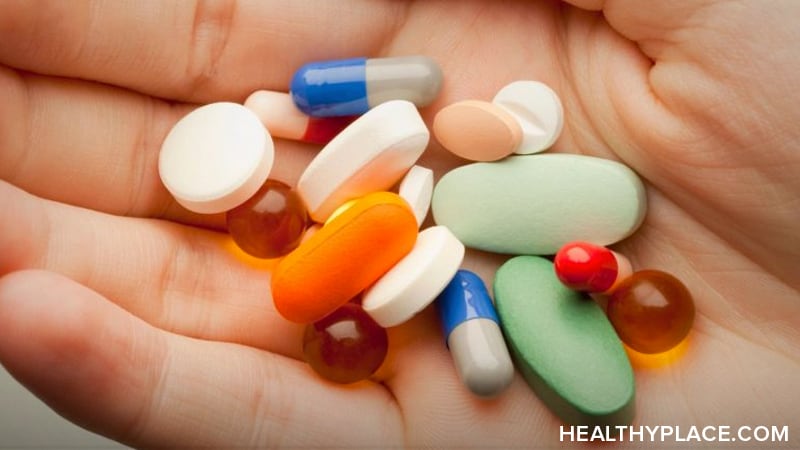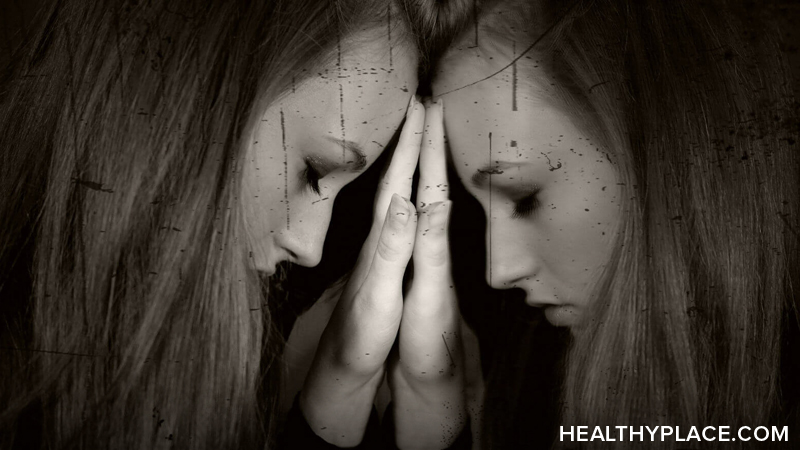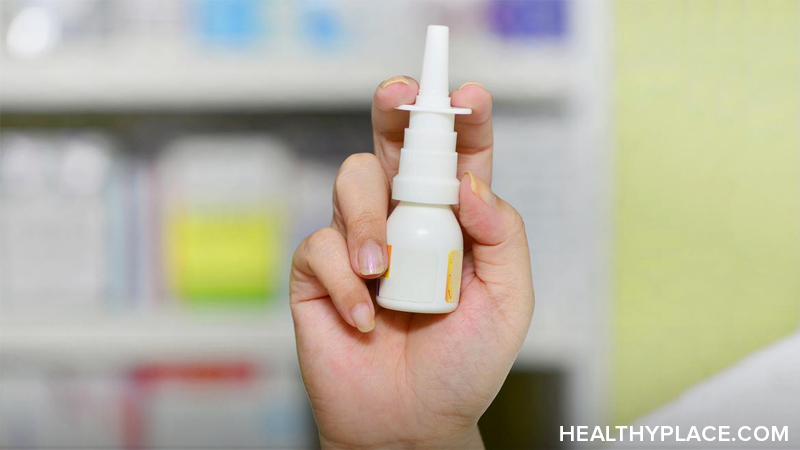
Sometimes antidepressants lose their effect. It's called antidepressant poop-out. Here's how doctors combat the loss of antidepressant effect.
Pharmacologic intervention in an individual with depression poses a number of challenges to the clinician, including tolerability of an antidepressant and resistance or refractoriness to the antidepressant drug. To this list we wish to add loss of antidepressant effect.
Such loss of efficacy will be discussed here within the context of the continuation and maintenance treatment phases after an apparently satisfactory clinical response to the acute phase of treatment.
Literature Review
The loss of therapeutic effects of antidepressants has been observed with amoxapine, tricyclic and tetracyclic antidepressants, monoamine oxidase inhibitors (MAOIs) and the selective serotonin reuptake inhibitors (SSRIs). Zetin et al reported an initial, rapid "amphetamine-like", stimulant and euphoriant clinical response to amoxapine, followed by breakthrough depression refractory to dose adjustment. All eight patients reported by these authors experienced loss of antidepressant effect within one to three months. It is not clear whether this loss of effect was related to features unique to amoxapine or to the patients' illnesses, for example, the induction of rapid cycling.1-3.
Cohen and Baldessarini4 reported six cases of patients with chronic or frequently recurrent unipolar major depression who also illustrated the apparent development of tolerance during the course of therapy. Four of the six cases developed tolerance to tricyclic antidepressants (imipramine and amitriptyline), one to maprotiline and one to the MAOI phenelzine. Mann observed that after a good initial clinical response there was a marked deterioration, despite maintaining the MAOI (phenelzine or tranylcypromine) dosage, even though no loss of inhibition of platelet monoamine oxidase was noted.5 In all four patients in this study, a temporary restoration of the antidepressant effect was achieved by raising the dose of the MAOI. The author suggested two possibilities for the loss of the antidepressant effect. The first was a fall in the level of brain amines such as norepinephrine or 5-hydroxytryptamine due to endpoint inhibition of synthesis, and the second was post-synaptic receptor adaptation, such as the down-regulation of a serotonin-1 receptor. Donaldson reported 3 patients with major depression superimposed on dysthymia who initially responded to phenelzine but later developed a major depressive episode that was refractory to MAOIs and other treatments.6 The author noted that the natural history of double depression, which is associated with higher rates of relapse and recurrence, may explain the phenomenon in her patients.7
Cain reported four depressed outpatients who failed to sustain their initial improvements over 4-8 weeks of treatment with fluoxetine.8 It is noteworthy that these patients did not show apparent side effects to fluoxetine, but there was a significant increase in their depressive symptoms from the initial improvement. He postulated that overmedication due to parent and metabolite accumulation with fluoxetine could appear as response failure. Persad and Oluboka reported a case of apparent tolerance to moclobemide in a woman who suffered from major depression.9 The patient had an initial response, then experienced breakthrough symptoms that remitted temporarily to two dosage increases. Sustained response was later achieved with the combination of a tricyclic antidepressant and triiodothyronine (T3).
The phenomenon of tolerance to antidepressants is not well understood. Different hypotheses have been suggested, as noted above in an attempt to elucidate the underlying mechanism. In addition it may be that the initial response in the acute phase is the result of a spontaneous remission, a placebo response or, in bipolar patients, the beginning of a switch from depression to mania. It may be attributed to non-compliance in some patients, especially where the drug levels are not monitored.
Management Strategies
When confronted with the possibility that an antidepressant may have lost its effectiveness, the clinician has one of four options. The first option, and one usually followed by most clinicians, is to increase the dose of the antidepressant, which may produce a return of effectiveness. Problems associated with this option include the emergence of side effects and increase in cost. Moreover, the improvement of most patients with this management strategy is transient so that subsequent augmentation or change to a different class of antidepressant is needed.
The second option is to reduce the dose of the antidepressant. Prien et al10 note that maintenance dosages were approximately one half to two-thirds of the antidepressant dose that patients had initially responded to at the acute phase of treatment. There is a suggestion that a therapeutic window may exist for the SSRIs similar to that for nortriptyline.8,11 This strategy may be particularly important with maintenance therapy with the SSRIs in which the current approach calls for maintaining patients at full acute doses. 12-13 When doses are reduced, gradual reduction of dose is advocated as rapid decrease in dosage may lead to withdrawal syndromes and a rebound deterioration of symptoms.14
The third option frequently used by clinicians is to augment the antidepressant with other agents, e.g., lithium, triiodothyronine, tryptophan, buspirone or some other antidepressant. Augmentation is usually recommended when partial response is still evident, while switching antidepressants is commonly undertaken when relapse is full. The advantage of augmentation is early onset of improvement, which is less than 2 weeks for most strategies. However, this approach is limited by side effects and drug interactions associated with the added drug therapy.
A fourth option is to discontinue the antidepressant medication and rechallenge the patient after 1-2 weeks.8 How this strategy works is not clear. The withdrawal and recommencement of the medication should put into consideration the drug's half-life and withdrawal syndrome. A final and arguably common option is the substitution of the antidepressant with another. This option should consider the need for a washout period especially when a change to a different class is being made.
Conclusion
Acute response to antidepressant treatment is not always sustained. Loss of effect of antidepressant therapy appears to occur with most or all antidepressants. Causes of relapse are mostly unknown, with the exception of treatment non-compliance, and may relate to disease factors, pharmacologic effects, or a combination of these factors. Management of loss of antidepressant effect remains empirical.
Oloruntoba Jacob Oluboka, MB, BS, Halifax, NS
Emmanuel Persad, MB, BS, London, Ontario
References:
- Zetin M, et al. Clin Ther 1983; 5:638-43.
- Moldawsky RJ. Am J Psychiatry 1985; 142:1519.
- Wehr TA. Am J Psychiatry. 1985; 142:1519-20.
- Cohen BM, Baldessarin RJ. Am J Psychiatry. 1985; 142:489-90.
- Mann JJ. J Clin Psychopharmacol. 1983; 3:393-66.
- Donaldson SR. J Clin Psychiatry. 1989; 50:33-5.
- Keller MB, et al. Am J Psychiatry. 1983; 140:689-94.
- Cain JW. J Clin Psychiatry 1992; 53:272-7.
- Persad E, Oluboka OJ. Can J Psychiatry 1995; 40:361-2.
- Prien RT. Arch Gen Psychiatry. 1984; 41:1096-104.
- Fichtner CG, et al. J Clin Psychiatry 1994 55:36-7.
- Doogan DP, Caillard V. Br J Psychiatry 1992; 160: 217-222.
- Montgomery SA, Dunbar G. Int Clin Psychopharmacol 1993;8:189-95.
- Faedda GL, at al. Arch Gen Psychiatry. 1993;50:448-55.
This article originally appeared in Atlantic Psychopharmacology (Summer 1999) and is reproduced with permission from the editors, Serdar M. Dursan, MD Ph.D. FRCP(C) and David M. Gardner, PharmD.
